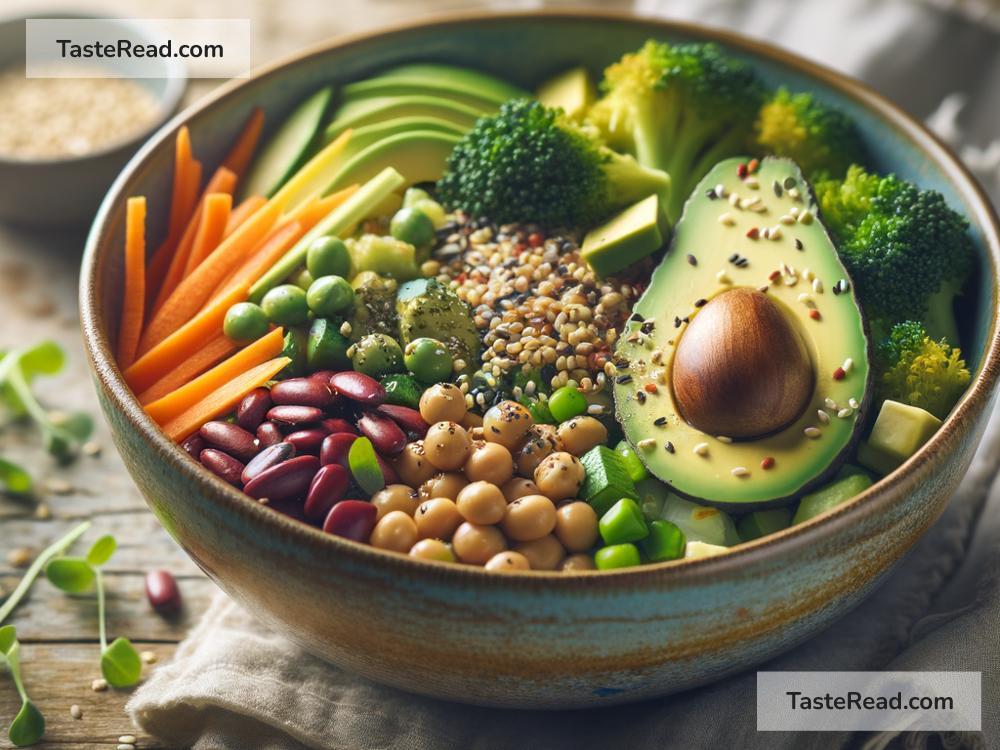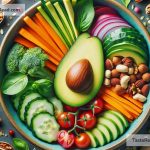Title: The Rising Trend of Vegan Flexitarianism in the Plant-Based Movement
In recent years, there’s been a notable shift in the way people approach their diets, with more individuals seeking healthier, more sustainable, and ethical eating habits. Among these evolving dietary trends, the vegan flexitarian diet is making waves and influencing the plant-based movement in significant ways. But what exactly is a vegan flexitarian diet, and how is it shaping the plant-based movement? Let’s dive in and explore this interesting trend.
Understanding Vegan Flexitarianism
At its core, the vegan flexitarian diet is about flexibility. It combines the principles of veganism—eating foods that are entirely plant-based and avoiding all animal products—with the flexibility of occasional meat or dairy consumption. This means that while someone following this diet primarily eats plant-based foods, they don’t strictly limit themselves and might occasionally eat meat, fish, or dairy.
This approach is perfect for people who want to reduce their animal product consumption and increase their intake of fruits, vegetables, legumes, and whole grains but aren’t ready or willing to fully commit to a 100% vegan lifestyle.
Why People Are Embracing Vegan Flexitarianism
There are several reasons why the vegan flexitarian diet is gaining popularity. For starters, it’s seen as a more achievable and less intimidating transition towards healthier eating habits. It allows individuals to explore plant-based foods without the pressure of adhering to strict dietary restrictions. This flexibility can make the diet more sustainable in the long term for many people.
Health benefits are another big draw. Vegan flexitarian diets are rich in nutrients, fiber, and antioxidants while being lower in calories and saturated fats. This can lead to various health improvements, including better heart health, weight management, and lower risks of chronic diseases.
Environmental concerns also play a role. Reducing meat consumption can significantly lessen one’s carbon footprint, water usage, and contribute to less deforestation. People who are environmentally conscious appreciate that the vegan flexitarian diet can be a more ecologically responsible choice.
Impact on the Plant-Based Movement
The rise of vegan flexitarianism is influencing the plant-based movement in a few key ways:
-
Increased Demand for Plant-Based Options: As more people adopt vegan flexitarian habits, the demand for plant-based food products has skyrocketed. This has led to a wider variety of alternatives to meat and dairy being available in grocery stores and restaurants. From plant-based burgers that taste like beef to dairy-free cheese that melts, the options are expanding, making it easier for people to reduce their meat consumption.
-
More Inclusive Approach: The flexibility of the vegan flexitarian diet makes the plant-based movement more accessible and appealing to a broader audience. By not being all-or-nothing, it invites more people to participate and contribute to the movement in whatever capacity they can. This inclusivity is key to driving broader changes in societal eating habits.
-
Focus on Plant-Based Education: With the growing interest in vegan flexitarianism, there’s been a surge in educational resources and awareness about plant-based diets. Cooking classes, online courses, workshops, and cookbooks are helping individuals learn how to prepare and enjoy plant-based meals, further empowering the movement.
Embracing the Change
The vegan flexitarian diet represents a shift towards more conscious eating habits that benefit personal health, animal welfare, and the environment. It’s about making more mindful choices without feeling restricted or overwhelmed.
As the plant-based movement continues to evolve, the role of flexibility in promoting sustainability and healthy living becomes increasingly apparent. Whether you’re fully vegan, vegetarian, or simply looking to incorporate more plant-based meals into your diet, the vegan flexitarian approach is a testament to the power of balance and choice in shaping a better future for our planet and ourselves.
In conclusion, vegan flexitarianism is more than just a trend; it’s a lifestyle choice that supports a healthier, more sustainable, and ethical world. It’s about celebrating the abundance of plant-based foods without feeling constrained by labels. As this approach continues to gain momentum, it’s exciting to see how it will further enrich the plant-based movement and pave the way for a more inclusive and environmentally responsible society.


